Introduction
Food poisoning is an ailment which occurs when eating foods with viruses, bacteria, fungi, toxins, parasites, and chemicals. It is not a serious illness which may go in two or three days. It is not an unusual and quite uncomfortable for an individual.

Contamination of a food by an infectious organism or toxins occurs at productions and processing. It can also occur even cooking at home by mishandling or incorrect cooking. Some of these toxins are naturally found in the food as well as in the environment. The onset of symptoms of food poisoning starts within a few hours of eating contaminated food includes nausea, vomiting, and diarrhea.
Pathophysiology
Pathogenesis of food poisoning can be classified into two types as non-inflammatory and inflammatory. In non-inflammatory diarrhea, the enterotoxins act on the mucous of small intestine without invasion. This leads to a large volume of watery stool without any pus, blood & abdominal pain and may result in occasional dehydration. Inflammatory diarrhea is due to the cytotoxic actions of the mucosa leading to invasion and destruction. Here the distal and small bowel is involved. In this type, all these actions result in bloody diarrhea.
Types of food poisoning
Botulism: A bacteria that are found in untreated water and soil is Clostridium botulinum which is a responsible factor for this acute illness. Botulism may also lead to paralysis.
Bacterial or infectious diarrhea: The bacteria Campylobacter jejuni causes infection in the small intestine. It is a type of traveler’s diarrhea.
E. coli enteritis: E.coli (E. coli O157: H7) causes severe infection in the small intestine and leads to critical food poisoning with blood in diarrhea. It is also known as Hamburger disease. This type of food poisoning may pose serious complications such as anemia and even kidney failure.
Fish poisoning: Diphyllobothrium latum is a tapeworm present in the fish, which may infect a person while eats such fishes as uncooked or undercooked. Some of the symptoms are abdominal cramps, diarrhea and sometimes weight loss.
Listeriosis: This is a serious type of food-borne disease caused by Listeria monocytogenes bacteria that exist in the form of a colony or community called ‘biofilm’.
Salmonella enterocolitis: Drinking water contaminated with salmonella bacteria causes such type of food poisoning. It affects the lining of the small intestines of people below the age of 20 years.
Staphylococcus aureus: This type of bacteria is able to produce 7 varieties of toxins, which are much resistant to heat and so it is difficult to kill through normal cooking. Foods that cause staphylococcal food poisoning are milk and cheese, sandwiches, pastries, and puddings.
Causes
Food contamination by various pathogens is the main reason behind the food poisoning. Contamination of food occurs at different stages when the food is produced, cooking or processed.
- Cooking of food at inappropriate temperature
- Inadequate cooking
- Chilling of food at incorrect temperature
- Touching the food with dusty hand
- Eating the food which is expired in its use by date
- Cross-contamination: contamination from other foods ex. storing the food in the fridge above the food which is going to eat.
- Using contaminated water for cooking
The pathogens which cause food poisoning are bacteria, parasite, virus, and toxins.
Bacteria
- Campylobacter: It is usually found in untreated water and raw meat and poultry.
- Salmonella: Salmonella found in egg and raw meat. It also available in dairy products such as unpasteurized milk
- Listeria: These bacteria are usually found in the chilled ready to eat foods such as butter, packed sandwiches, cooked sliced meats, smoked salmon, soft cheese such as brie, camembert.

- Escherichia coli: It is generally found in the digestive tract of humans as well as animals. Some strains are useful and some may cause serious illness.
Parasites
These are another type of microbes but different from bacteria. The parasite is an organism which lives within another organism. Parasites that cause food contamination are cryptosporidium, Entamoeba histolytica, and giardia. Toxoplasmosis is the most likely cause of parasitical food poisoning. The cause of toxoplasmosis is eating food or water contaminated with the feces of infected cats and undercooked contaminated meat.
Toxins and chemicals
Toxins are the poison produced by the bacteria which contaminate food as well as the bacteria itself. If the bacterial contaminated food is reheated or cooked again produces toxins which lead to food poisoning. Some seafoods especially oily fishes can be contaminated with toxins such as polychlorinated biphenyls (PCBs). These toxins levels in fish are very low but still, it can be a risk to unborn babies. Some of the oily fishes are:
- Fresh tuna (not canned tuna, which does not count as oily fish)
- Mackerel
- Sardines
- Trout
- Salmon
There are some fishes with the high level of mercury which also damage the nervous system of unborn babies. Therefore it is advised to avoid the following fishes by pregnant women.
- Shark
- Swordfish
- Marlin
Virus
There are two common viruses which cause food poisoning is norovirus and rotavirus. Rotavirus is common in children whereas norovirus infects the people at any age.
Risk factors
Some foods which may put you at risk are as follows.
- Partially cooked seafood, such as shrimp and crab
- Unpasteurized milk
- Homemade salad dressings
- Raw cookie dough
- Soft Cheeses
- Meat spreads
- Raw meats
- Any raw or undercooked fish
- Canned food that has been canned at home, including honey and jams
There are some diseased peoples who are at risk.
- Pregnant women
- People with chronic diseases such as diabetes, liver disease or AIDS
- Infants and children less than 5 years of age
- Elderly people over 70 years of age are at greatest risk
- Persons with Autoimmune Diseases
- Cancer Patients
Symptoms
The symptoms of the food poisoning may vary from mild to severe depending upon the type of contamination that occurred. Symptoms may begin after an hours or days after consuming the contaminated food. Symptoms may include:
- Diarrhoea
- Vomiting
- Loss of appetite
- Aching muscles
- Chills, fever or sweating

- Lack of energy and weakness
- Abdominal cramps or stomach pain
- Nausea (feeling sick)
- Extreme tiredness (lethargy)
- A headache
Food poisoning may occur to one person or to a whole group who are exposed to the contaminated food.
Complications
Common complications include:
- Dehydration
- Problem in unborn babies
- Bloody diarrhea
- Tiny blood vessels damage
Complications vary based on the period it long lasts (Long-term effects):
- Kidney failure
- Arthritis
- Brain nerve damage
- Death
Diagnosis and test
- Diagnosis starts with patient’s history of eating foods, travel history, exposures to contaminated food or asking question about your friends or relatives with similar symptoms
- The physical symptoms such as dehydration and abdominal tenderness
- Diagnosing stool sample to detect the blood in stool, pathogen, parasites are tested microscopically and toxins in the stool
- In addition, the immunological tests are carried out to test for toxins such as Shiga toxin. In some rare cases, biopsy samples may be taken
Treatment and medications
- Treatment may vary based on the cause and its severity. For some people without treatment it gets cured in few days or within a day and sometimes food poison may last longer.
- People with mild diarrhea lasting for 24 hours are treated with clear fluid such as oral replacement solutions
- Medication may give benefits for some patients to reduce nausea and vomiting. Loperamide (Imodium) and Pepto Bismol can be used to treat diarrhea and additional problems like nausea
- Sometime, your doctor may prescribe antibiotics if you have bacterial food poisoning such as listeria. During pregnancy, the antibiotic treatment may help to keep the infection away from the baby
Prevention
To prevent food poisoning, try to avoid the following some simple steps
- Wash your hands and utensils often
- Wash fruits and vegetables before eating
- Keep raw foods away from used foods
- Don’t use packaged food that has expired

- Cook meat thoroughly up to 180° F
- Don’t eat raw fruits and vegetables without washing
- Keep your refrigerate temperature at 4.44º C and refrigerate properly. Foods may get contaminate within 2 hours unless you refrigerate
- Avoid foods until you feel better
 Diseases Treatments Dictionary This is complete solution to read all diseases treatments Which covers Prevention, Causes, Symptoms, Medical Terms, Drugs, Prescription, Natural Remedies with cures and Treatments. Most of the common diseases were listed in names, split with categories.
Diseases Treatments Dictionary This is complete solution to read all diseases treatments Which covers Prevention, Causes, Symptoms, Medical Terms, Drugs, Prescription, Natural Remedies with cures and Treatments. Most of the common diseases were listed in names, split with categories.
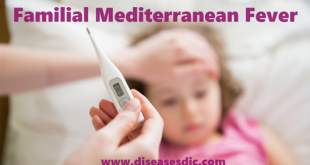

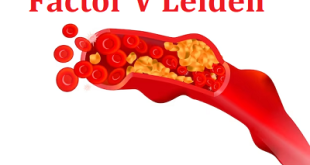
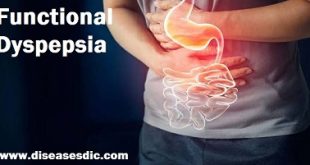
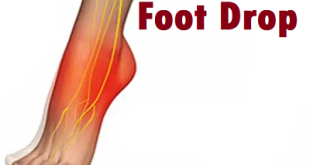
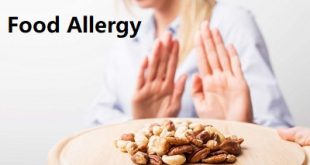


I am glad, when I came across the web sight of health benefits. it also help me, to take care of my self and how to apply them accordingly thanks.
I think that the information given is very good to have access to. I appreciate the availability of the reference points. But also, I think that more information on the treatments that would stop or cure any ailments, could be given more informative descriptions and/or more. detailed prescriptions.
I hope that I am understood as not trying to criticise, but rather, to make a helpful observational feedback comment
what about fungus, algue, moulds ?
This is a simplest explanation of food poisoning, very interesting one.
Thanks for the free lecture but please do well to give more treatments.
sure we will update more diseases and treatments very soon.
what is the best treatment for rat poison
There are things that you can do yourself too, such as that you take Vitamin K to counteract the effects of the blood thinner in the rat poison. Activated charcoal or syrup of ipecac are also known remedies that are sold over the counter. However, if you do take any of these it should only be done as a containing measure while you’re trying to get to a medical professional
Though I’m taking medication prescribed by Doctor.
often I feel to vomit and have stomachache.
how long does food poisoning effect last?
Please follow a proper diet and consult a gastroenterologist for a cure.